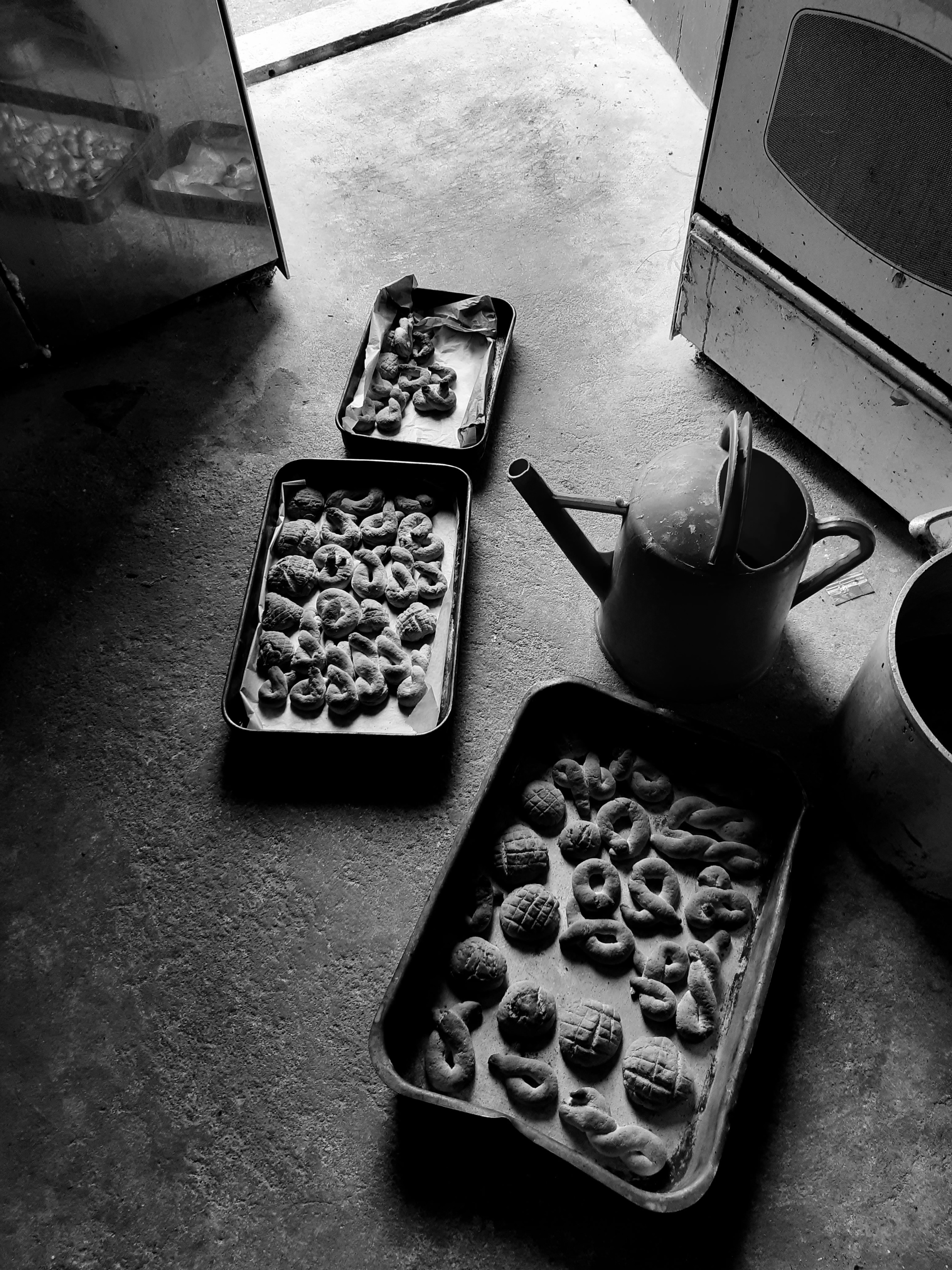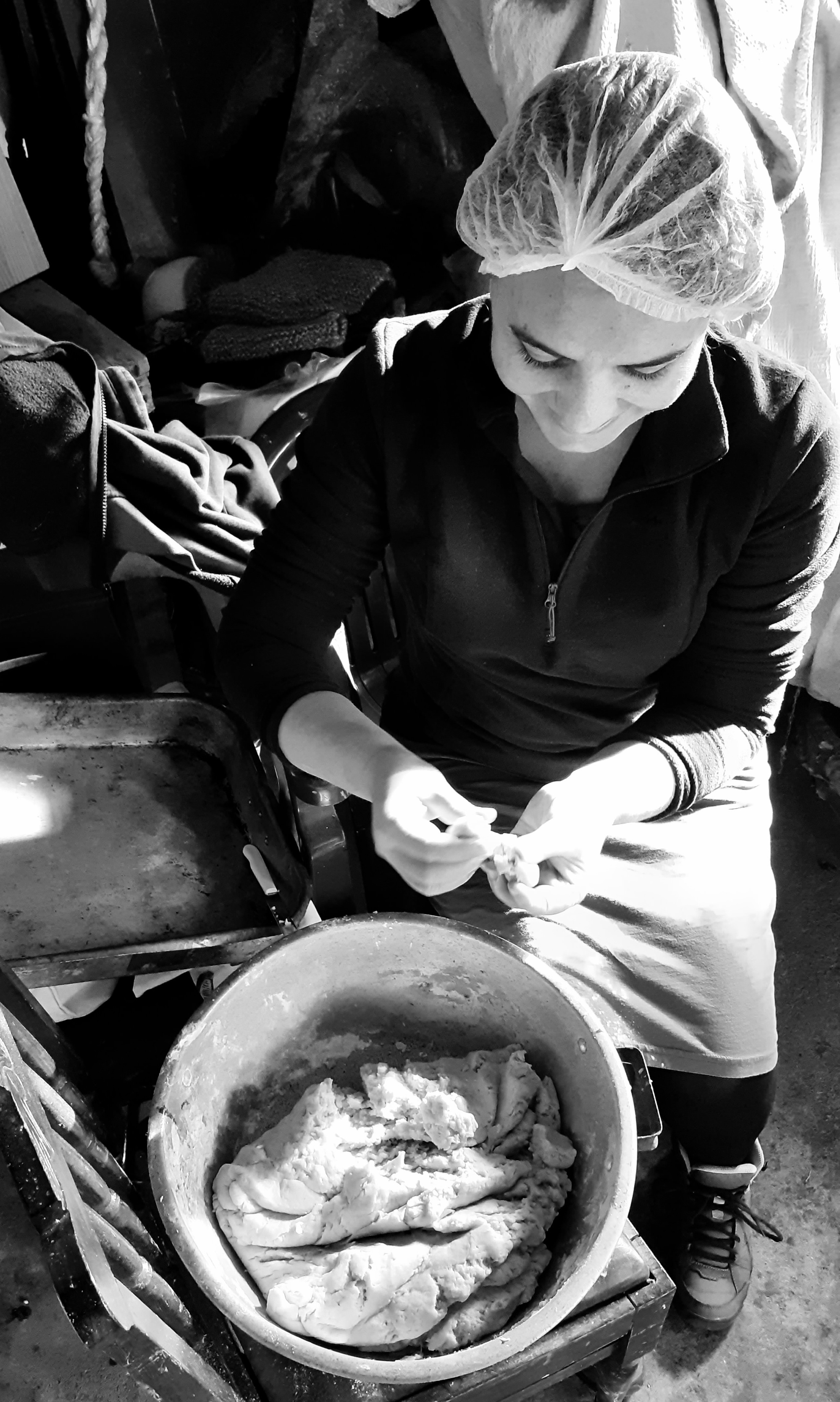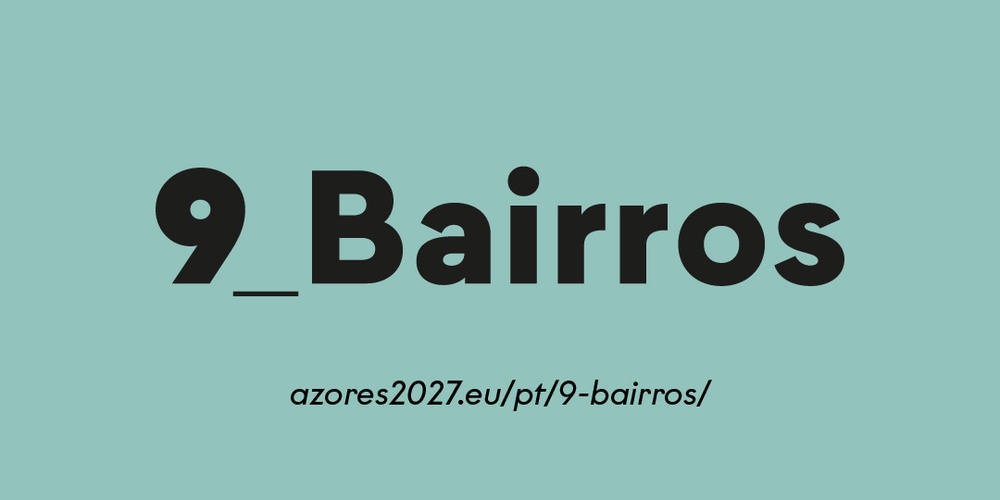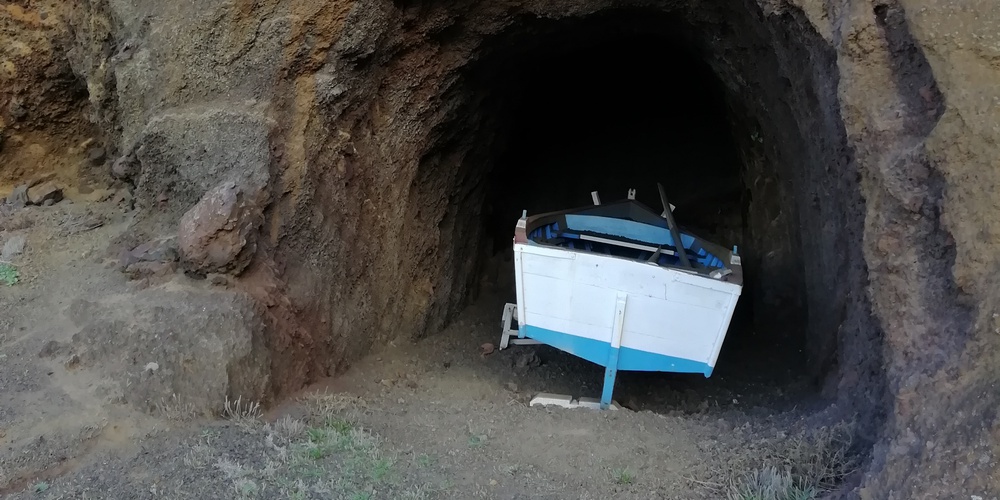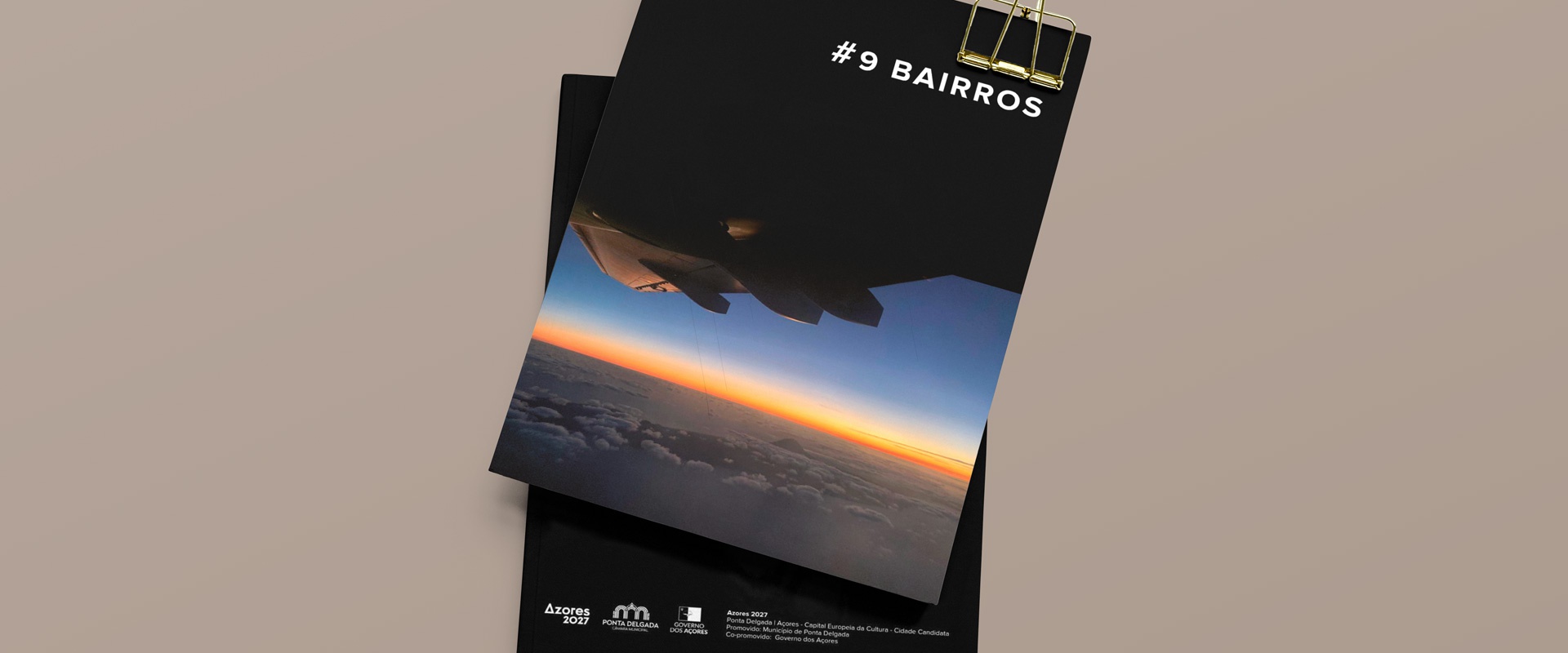
Staying here feels like a return
In this house that stands on the line that unites the island to the sea, you can sometimes smell the wild wind that has come down the hillside, bringing with it the green of the land, the acridness of the roots that make it up. It carries all this to the sea, unfolding in the windows, expanding through them until it finally reaches some chest in which it retreats.
Here, in this nook of the island of Corvo, it may be my chest that opens itself to the sea. Because, here, the decomposing of days allows for the languor of time, a quieting of the superfluous frenzy that does not bear in itself passivity, but rather the transposing of creativity. As if poetry were always present, ready to be picked - and chosen.
Living in Corvo, in this unintermittent stay of almost a year, sweeping two people together off their feet, allows me to have the audacity to speak of it as if it were already mine. It’s a charm that overflows to the rest of the dotted islet - to the much that I still long for (that I need) to know. Choosing to be here also brings this responsibility: to preserve and to get more and more acquainted with this idea of being an islander, an Azorean, an Atlantic, a Corvino (1).
In my living room, I have a childhood photo where I smile in my pink dress with flying birds - I see in my happy look a simplicity that growing up was struggling with the torpor state of the city and the brief glow of anonymity. I realise now that this return to the simple days was ever more awaited and that it was found and embraced in the calmness of the island of Corvo.
I write in the dusk, in the golden light that invades the wrinkles of the neighbouring chimney. The island in front is cut by the church tower and by shadow lines. The sound of the terns interrupts that of the voices still on the quay. Little by little, the silence of the night starts to impose itself, where only the scream of the shearwaters and the roar of the waves will be unwary.
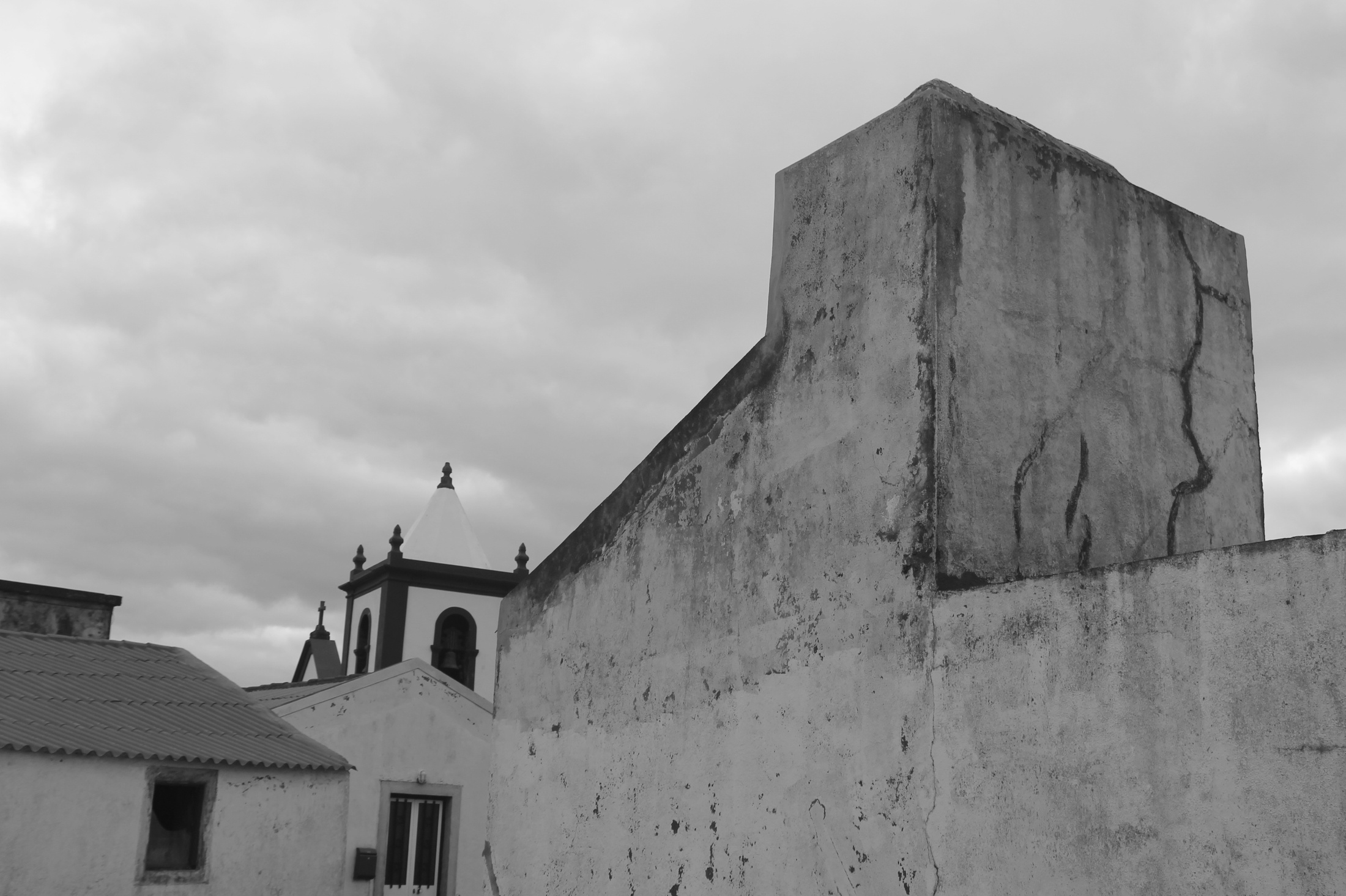
I know that, in Outeiro, the elders are already waiting, sitting on the steps along the square. Upon arrival, it is possible to hear their cheerful whispering. There are very few of them, but they are always there at twilight. Walking up to them to listen to their stories from when that square used to fill up with Corvinos is one of the privileges of being in Corvo. There’s a lot of hardness in the old tales shared by these almost storytellers. Yet you can still see a sparkle in their eyes when remembering the old days: the walks to the upper lands, the corn leaves that stung the hands, the women’s wheels when spinning the wool, the runs on the rocks when the sea stole their limpets, the bad weather that didn’t prevent, for example, women from leaving by boat to give birth in other islands.
I like to hear bits and pieces of stories about the house where we live now – about the couple Florinda and António, their corvine shenanigans. On the outside wall of the patio remains the inscription ‘L.F.J. 1963’ carved by their only son – as if it were a treasure left by those who once walked these halls - bringing a sense of warmth to living here.
There it is in the steps taken in the morning on the way to the bakery and in the good morning that everyone shares as they cross paths when fetching their daily bread. On those mornings, when the sky is clear, you can see the sun rising on the tip of Rocha and breaking on top of the houses of Matriz, exposed in their stone nakedness. If it rains, the black of the sea dulls with its abrupt beauty, its roar of an ancient and ferocious thing. And the starlings keep on insisting on chirping on the wire that connects the houses, just as everyone insists on that ‘good morning’ that so often seems to carry the whole island.
I remember the first days here in this house that is already ours with a different solidity from the first crossings through Corvo: we could hear the crickets in the viewpoint across the street, and we already knew the voices of those passing in the street. The sound of the sea, always immense. They speak to me (outsiders, sometimes locals) of that immensity as if it were a limit that locks – for me, it is a form of freedom (of the many that I find here). I feel that the sea greets the island, surrounds it in a loving embrace, lends it its salty smell – and that breaks down my time. The sea doesn’t scare me. I know it will always bring me back.
I wonder how it will be when the elders leave. From whom will I hear about the old Corvo because that is also what encourages me to want to work for this Corvo present and now mine. The island is worthy of it – from here comes the calmness that allows me to create. The man who told us all that “the world doesn’t end here, it starts here” has already died – and the loss was painful and almost incomprehensible the act of lowering to earth a heart that loved its island. The feeling will be equally abrupt when the others disappear, so I inhale everything they want to tell me in puffs. Odete, Pedro, Celeste, José Maria, Raúl, Maria José, Agostinho.
To be here is to learn little by little the plots of the Holy Ghost Festivities, to feel the smell of the bodo de leite (2), the whispering voices that pray the rosary in the Império (3) at nightfall, to kiss the crown that passes by the houses, to know who embroidered the red doves that dance on the flag at the top of the square. To look for the procession and see the looks on the girls’ faces who dress up like queens, to hear the band in front of the church as an offering. Be part of this joy.
I hope to attend the Festas de Nossa Senhora dos Milagres (4) in a year when the feast is complete: to go down the streets placing petals on the carpet that the women design and offer to the saint - ephemeral, but so by their hands. Hands that have already taught me so much. For me, it is almost poetic the work of the women from Corvo, their adjustment to the present day, their strength. They teach me not to lose heart, to always go forward, to take the lead in my own life.
Winter was transposed in its continuous rain, in the wind clamouring at the windows, in the foaming roar of the waves. This winter season is for insightful imagination. For books. For the measuring of dreams. It is an Atlantic winter that leaves a salty taste in one’s mouth. It surprises you, but it makes you fall in love. Whoever goes through that time on the island goes through everything. You stay for everything.
Time. Because in Corvo there is time. The hours get projected onto the days as promises of that time that slipped away from our hands in the furore of a city that is wasting away. And to be able to breathe. Not only this physical act that sustains us but the almost magical act that allows us to dream. It may be just wishful thinking, but here, on this island, I feel that time expands our dreams.
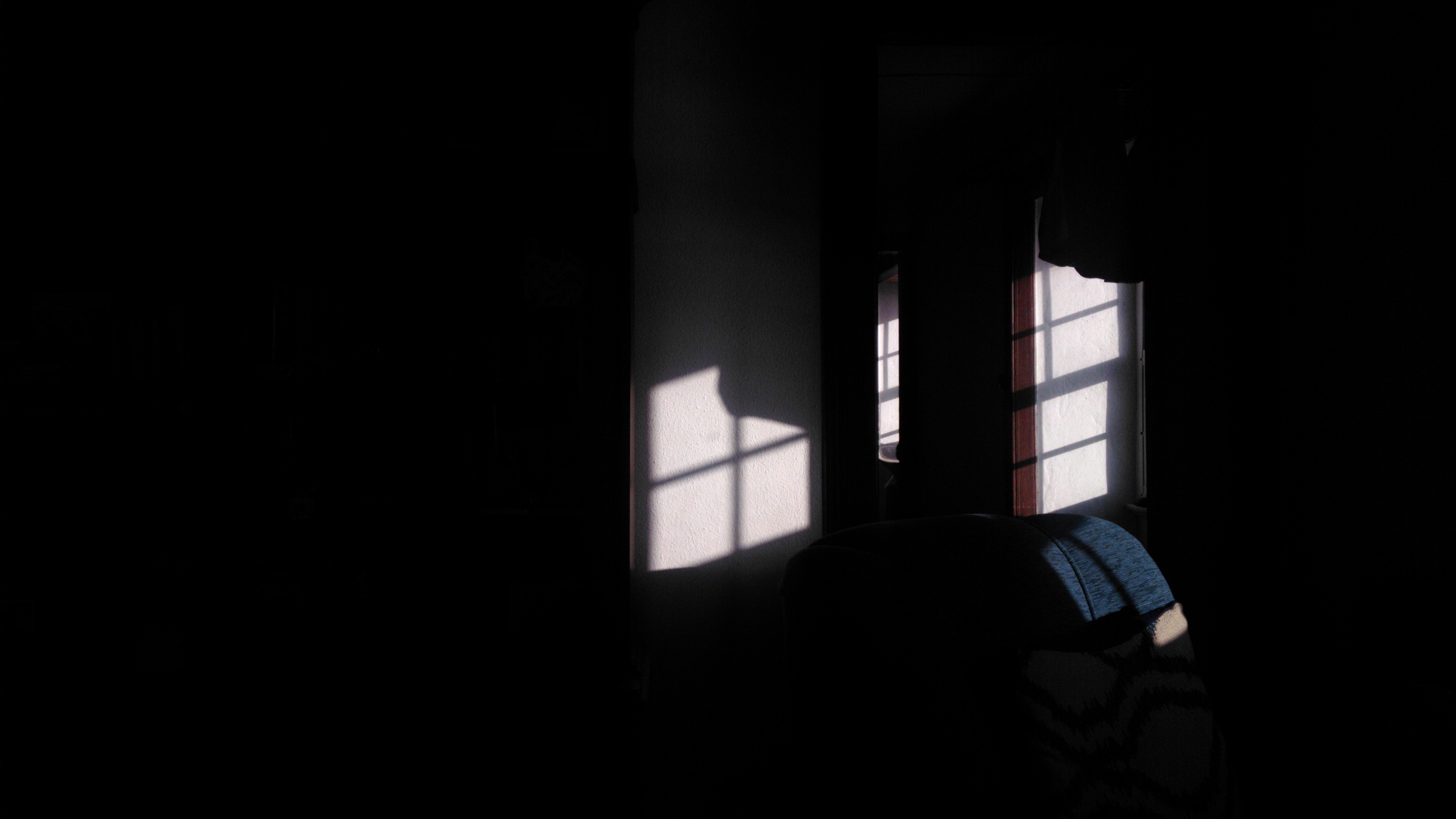
Sometimes, people from afar ask what one does here so long in the same place. The answer is quite simple: you live. One opens one’s chest to the smell of the hydrangeas still wet from the late rain. To the black of the stone of the haystacks that populate the lands above the village. To the voices that pass in front of the patio open to the street and stop to chat over the fence. To the crackling wood of the oven where toast and memories boil. One opens one’s chest even to the evidence that here we all know about everyone – and that doesn’t frighten, it’s just an architectural remnant: windows before windows in the narrow streets. We are few - that is enough to look at ourselves.
Living in peace and quiet allows me to admire the variations of light on that rock by the sea that I contemplate from here, it enables me to be writing this text while listening to the remnants of an old song coming from the living room that lulls the other living person who, with me, lets himself be charmed by the island: the shoulder where I nest and rest.
Our books are on their way to Corvo by the open sea, and there is also poetry in it, pages that will arrive with a marine smell. I revive the words of Natália Correia: “From now on, if someone wants to find me, look for me between laughter and passion”.
Look for me on the island.
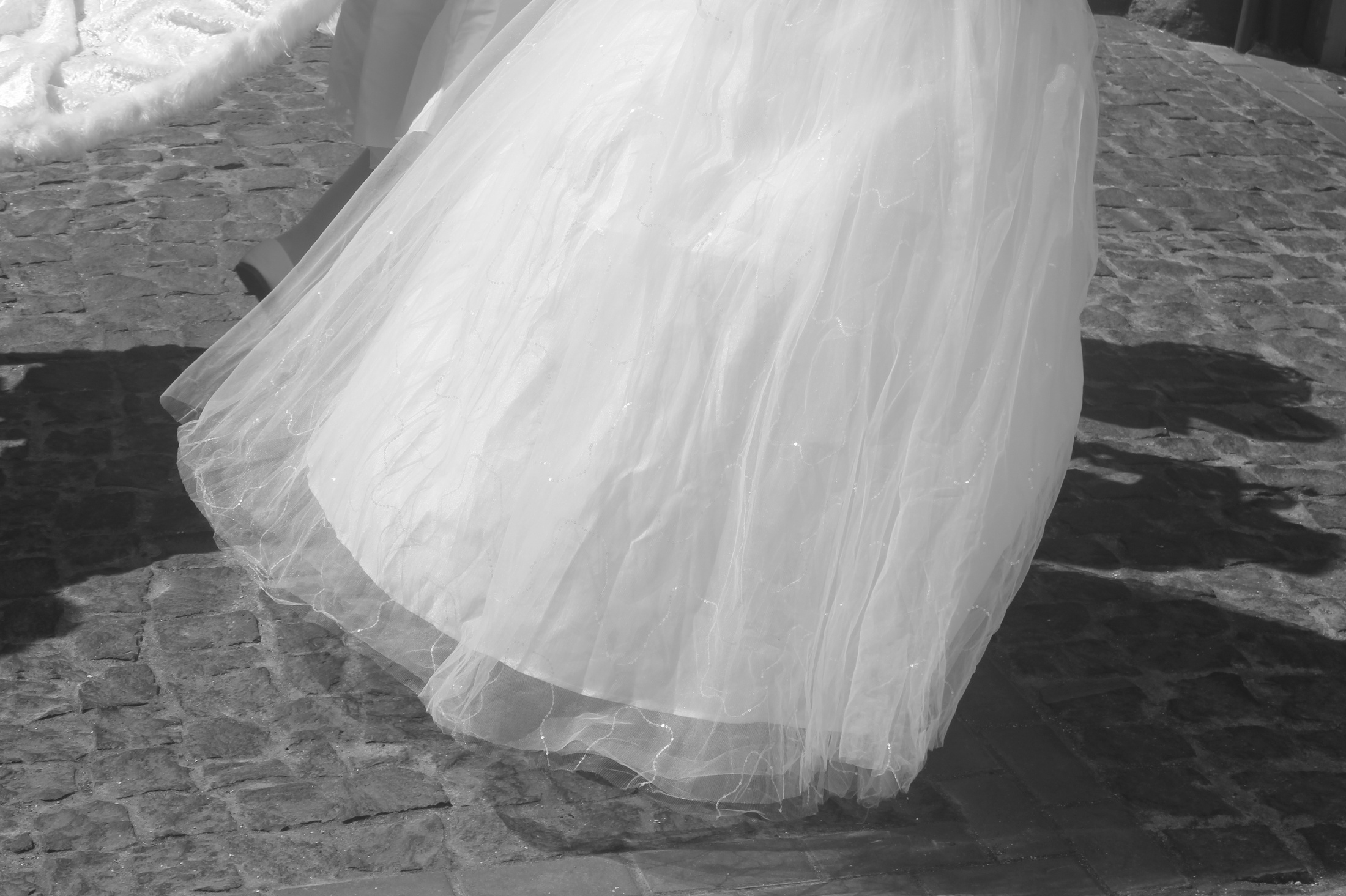
1981. Born near the mainland sea – distant and anonymous – it was necessary, later on, to travel the island path to turn the sea into something mine and full of wonders. Behind me, there are other paths: Peniche – Lisbon, in ephemeral twists and turns, in the abandonment of a big city; the disenchantments of a Law that is always crooked; the search for imagination in small things. Then and now the island dream.
Vânia Chagas is from mainland Portugal and has been living in Corvo for a year.
(1) A native or inhabitant of the island of Corvo
(2) Milk festival
(3) Small chapel
(4) The festivities in celebration of the patroness saint of Corvo

